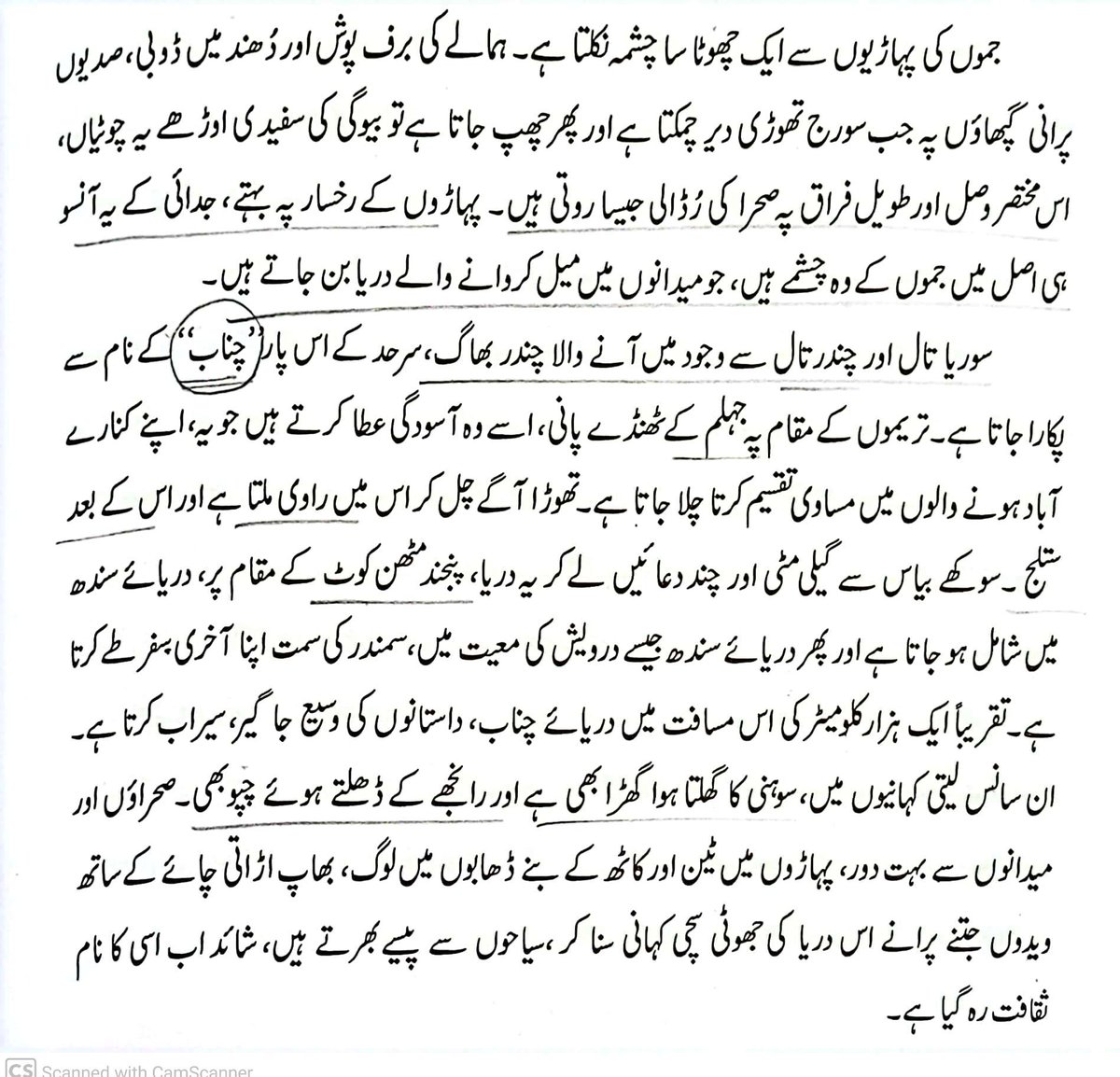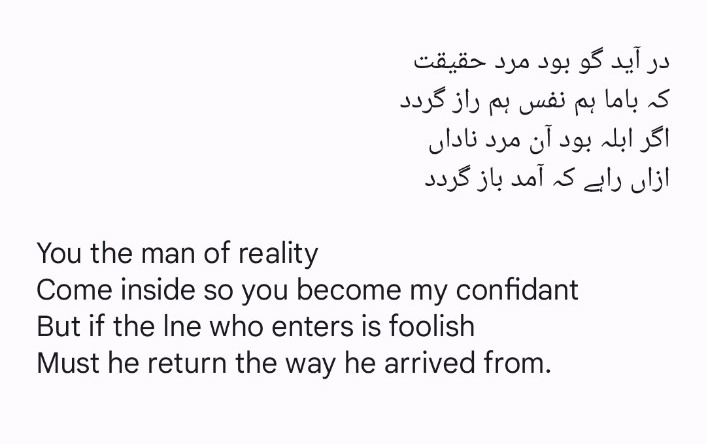"Paar Channa De, Sohni Mahiwal & Music 🎶"
In the autumn of 2016, Coke Studio released a song & millions can be seen grooving to it. Traditional lyrics ft. Qissa Sohni Mahiwal, revivified by Noori, rendered alongwith Shilpa Rao is a piece of art but there's more to it
(1/21) 🧵

In the autumn of 2016, Coke Studio released a song & millions can be seen grooving to it. Traditional lyrics ft. Qissa Sohni Mahiwal, revivified by Noori, rendered alongwith Shilpa Rao is a piece of art but there's more to it
(1/21) 🧵


Pakistani culture has a very generous share of folklores - tragic love tales are mixture of beliefs, fact and fiction. Told & retold by poets, recited by folk musicians, resurrected by modern musicians, celebrated & filmed by music industry, they are heartfelt and soul stirring.
The song starts with "Par channa de dissay kulli yaar di" which is a conversation between Sohni and Clay pot (gharra). This reference is to the tragic tale of Sohni Mahiwal (famously penned by Hashim Shah; another version by Fazal Shah). We'll get back to it later. 

"Paar Channa De" produced by CS was traditionally rendered & preserved by Sufi musicians of Punjab. The major credit for keeping it alive goes to Ustad Mattay Khan and his sons who've been reciting it at Darbar Syed Chanhan Badshah, Shadiwal Lahore.
A snippet form 1997 recording.
A snippet form 1997 recording.
Before dissecting it verse by verse, let's revisit the tragic tale of Sohni Mahiwal & Gharra.
In folklores, River Chenab is remember as "Chanhan" & is believe to weild magical ferocity that challenges lovers and eventually their story is written with blood on its rippling waters.
In folklores, River Chenab is remember as "Chanhan" & is believe to weild magical ferocity that challenges lovers and eventually their story is written with blood on its rippling waters.
MHM in his book "Rail ki Seeti" writes that in Mahabharata, Chenab bears the name "Chandrabhaga" owning to the confluence of two rivers Chandra & Bhaga in Himachal Pradesh. Love sages of Heer Ranjha & Sohni Mahiwal are wrapped in the sinous tides of Chenab/Chanhan/Channa. 

"Qissa Sohni Mahiwal" is an epitome of love, intensity and tragedy. In 18th century Mughal era, on the bank of Chenab lived a potter, Tulla whose earthenware/claypots were sold throughout India and beyond. Her daughter, named Sohni was brought up with the artistry of kneading
clay and moulding it on the wheel to shape it into pots and pitchers. Apart from being an artist, she was a unparalleled beauty. Izzat Beg descended from Bukhara carrying a caravan, went to Delhi, bagged profit in trade& going back he camped in Gujrat where the fate awaits him. 

Enchanted by Sohni's artistry and ethereal beauty, Izzat Beg kept buying claypots everyday until the coffers became empty. To pay the due debt to Sohni's father, Izzat Beg took up a job at her house. Here, he was reborn as Mahinwal (the buffalo-herd) because he knew only by
dispossessing all the riches, titles, prestige, relations, earlier existence, and even losing his name, he can find his love.
Stricken by destiny, Sohni was forced to marry another man of her father's choice and Mahiwal swarmed across the river and settled in another village.
Stricken by destiny, Sohni was forced to marry another man of her father's choice and Mahiwal swarmed across the river and settled in another village.
He became a faqir, searching for Sohni's whereabouts & managed to sneak into her house by disguising himself as beggar & dropped his new address across the Chenab. Sohni used to swim across the river every night with the help of a claypot/pitcher/gharra.
Haji Mehboob Ali recites
Haji Mehboob Ali recites
ندیوں پار سجن دا تھانہ
کیتے قول ضروری جانا
Ashiq Hussain Jatt sings "Qissa Sohni Mahiwal" and narrates the beseeching of Sohni where she begs "gharra" to take her acorss since she has promised to meet her beloved, Mahiwal.
One day, Sohni's sister-in-law suspected sth unusual and
کیتے قول ضروری جانا
Ashiq Hussain Jatt sings "Qissa Sohni Mahiwal" and narrates the beseeching of Sohni where she begs "gharra" to take her acorss since she has promised to meet her beloved, Mahiwal.
One day, Sohni's sister-in-law suspected sth unusual and
upon finding about her secret meetings with Mahiwal, she decided to replace baked pitcher with unbaked one. Sohni set out at night for meeting with Mahiwal, picked the pitcher, entered the river. It was a stormy night, moon shined brightly in sky but the unflinching desire to
meet the beloved Mahiwal made her proceed but Sohni was gradually slipping into the deep waters of Chenab.
Ustad Miandad Khan Qawwal sings
عشق دی ھنیری کچا پکا نہ پچھاندی
عاشقاں دی گل ہوندی اپنے ایمان دی
یار دا دیدار ہوندا یار نوں گنوا کے
چنگی نئیوں کیتی گھڑیا
Ustad Miandad Khan Qawwal sings
عشق دی ھنیری کچا پکا نہ پچھاندی
عاشقاں دی گل ہوندی اپنے ایمان دی
یار دا دیدار ہوندا یار نوں گنوا کے
چنگی نئیوں کیتی گھڑیا
Fazal Shah in his Qissa Sohni Mahiwal also penned the tragic events enfolding in the ferocious tides of Chenab where Sohni has been helplessly trying to rush across the river, her Mahiwal awaits her. She begs the pitcher to take her across.
کیتے قول ضروری جانا
کیتے قول ضروری جانا

ویکھ چھلاں پیندیاں نہ چھڈیں دل وے
اج ماہیوال نوں میں جانا مل وے
(Look the waves are splashing higher and higher but don't lose heart
I must go to meet Mahiwal this night at any cost)
And when the waves are sinking her, she bellows in agony,
Yaar nu milay ge aj laash yaar di !
اج ماہیوال نوں میں جانا مل وے
(Look the waves are splashing higher and higher but don't lose heart
I must go to meet Mahiwal this night at any cost)
And when the waves are sinking her, she bellows in agony,
Yaar nu milay ge aj laash yaar di !
Najm Hosein Syed sb writes, "As the unbaked clay is rapidly eaten by the lashing anger of Chenab, Sohni is joked into attrible awareness of herself and of Mahiwal who had jumped back to rescue. But there is no rescue from regression the struggle towards the moment of togetherness
which is also the final parting as they go down into the dark depth of Chenab." It reminds us of "Yaar nu milay ge aj laash yaar di" and also of Hashim Shah's
ہاشم باجھ مویاں نئیں ملدا اساں ٹھیک صحیح کر جاتی
The song also laments about "kachaa/unhaked" gharra which underscores
ہاشم باجھ مویاں نئیں ملدا اساں ٹھیک صحیح کر جاتی
The song also laments about "kachaa/unhaked" gharra which underscores
Sufi ideology.
"Kacchi meri mitti, kaccha mera naam ni,
haan main nakaam ni,
kacchya'n da honda kaccha anjam ni,
aeh gal aam ni"
(I am made up of unbaked clay,
bound to melt in the river
Being unsound and unsteady
I cannot but fail in carrying you across)
Arif Lohar also sings,
"Kacchi meri mitti, kaccha mera naam ni,
haan main nakaam ni,
kacchya'n da honda kaccha anjam ni,
aeh gal aam ni"
(I am made up of unbaked clay,
bound to melt in the river
Being unsound and unsteady
I cannot but fail in carrying you across)
Arif Lohar also sings,
Irshad Ali and Shabbir Hussain Sabri Qawwals narrates the tragic tale of Sohni Mahiwal as,
پوندی رہی اے چنہاں تے دُہائی
کَچیاں دے لڑ لگ کے
ایویں باں باں جگ تُوں کرائی
کَچیاں دے لڑ لگ کے
Also Maulvi Ahmad Hassan recites
ٹُٹ جان نہ ماہی دے ولوں میریاں
وے لے کے بَنے لگ گھڑیا
پوندی رہی اے چنہاں تے دُہائی
کَچیاں دے لڑ لگ کے
ایویں باں باں جگ تُوں کرائی
کَچیاں دے لڑ لگ کے
Also Maulvi Ahmad Hassan recites
ٹُٹ جان نہ ماہی دے ولوں میریاں
وے لے کے بَنے لگ گھڑیا

It's a hauntingly tragic tale of lovers who were swallowed by the ferocity of Chenab but the their story is a larger than life entity in the realm of folk music and literature whose grandeur will transport you into another universe - the infinite universe of Love.
(21/21) 🧵
(21/21) 🧵
jolted into terrible awareness*
• • •
Missing some Tweet in this thread? You can try to
force a refresh

 Read on Twitter
Read on Twitter















